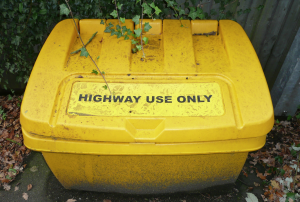The Education Secretary Nicky Morgan has announced that ex-soldiers will be on hand to teach children about ‘grit’ along with programs designed to increase their levels of resilience. Her opposite number, Tristram Hunt, has been banging on about this for a while now, both appearing to announce interventions for things of which they understand little.
I can only assume that both Morgan and Hunt have adopted the term ‘grit’ from psychologist Angela Lee Duckworth, whose research appears to have identified certain traits that result in individuals striving to complete tasks and having a passion for long-term goals. If Morgan and Hunt aren’t referring to this research, then I’m not sure that they are in agreement on what they are banging on about. I have heard Hunt use the terms resilience and grit interchangeably and even referring to grit as an American term for resilience – which it isn’t, by the way.
So do children need ‘resilience’ and ‘grit’ training and are former service personnel the best suited to provide it? That all depends on what we mean by the terms we are using.
Morgan has stated:
For pupils who may have faced challenges or difficulties in their personal life, these initiatives run by former armed services personnel can offer a sense of greater aspiration and can help build the skills and confidence they need to go on to good jobs and successful futures
Here, Morgan is suggesting that resilience training would help those children who have experienced adversity in their lives – the ‘traditional’ view of resilience. The problem is that many children who have faced such challenges, and have come through them, have already displayed considerable resilience. Ann Masten, in her now classic article ‘Ordinary Magic’ rejects the view that resilient children are in some way special, claiming that resilience arises from ‘normative functions of the adaptational system’ (Masten, 2001 p.227). Is resilience something that can be taught directly or is it something that emerges through life’s inevitable ups and downs? Furthermore, is this the kind of resilience that students need to develop? If resilience arises through life experience then this would suggest that the ability to cope with adversity emerges naturally – it is not something that can be taught. A more realistic approach would be to concentrate on those day-to-day problems encountered at school that can zap self-confidence and lead to self-handicapping strategies. These problems might be minor but personally significant.
Indeed, some schools have already introduced ‘resilience’ building programs into their curriculum. However, a recent systematic consultative review found that many resilience programs within schools used the term ‘resilience’ is such a vague and conceptually weak manner that the authors found it difficult to identify those which could be realistically described as resilience-based (Hart & Heaver, 2013)
So what about ‘grit’? Research into the grit construct is at the very early stages, so much so that defining it becomes a difficult challenge. Critics claim that the way in which it overlaps with other constructs (including resilience) means that we are still a long way off when it comes to training a person to become more ‘gritty’, never mind identifying those who have increased their ‘grittyness’ post intervention.
If we assume that we are all agreed on what represents these two related constructs, are ex-soldiers the best people to train young people in how to become more resilient and grittier? I suppose that depends, but my gut says ‘no’. Resilience and grit involve a number of other skills, like self-efficacy and emotional self-regulation). Positive emotions are more often present in resilient individuals and those students who are better at regulating their emotions respond more constructively to feedback and view themselves as having more control over their environment are better able to bounce back from challenging situations. Many former soldiers might also display such characteristics, but so do many others, including teachers and students.
My instinct tells me that Morgan and Hunt are more interested in the terms and the images such terms conjure up, rather than being aware of (or even interested in) the concepts themselves or, indeed, the outcome measures involved.
They certainly haven’t read the literature.
References:
Hart, A. & Heaver, B. (2013). Evaluating resilience-based programs for schools using a systematic consultative review . Journal of child and youth development. 1 (1). p.pp. 27–53.
Masten, A. (2001). Ordinary Magic.pdf. American psychologist. 56 (3). p.pp. 227–238.
